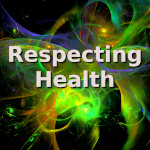
Rob Moodie sees a big issue and solutions that require us to re-examine our values not just as individuals but as organizations with commercial interests. Commerical Determinants of Health (CDoH) have a powerful influence on society and health. First, some background.
Within the world of healthcare, the concept of Social Determinants of Health (SDoH) has seen a lot of attention, especially in the past several years. More organizations are paying attention to the issue. What are social determinants? According to the US Department of Health and Human Services, (HHS) social determinants are “the conditions in the environments where people are born, live, work, play, worship, and age that affect a wide range of health, functioning and quality of life outcomes and risks.” Typically, we talk about things like safe housing, access to transportation, violence levels, racism, education, access to decent food, literacy, and environmental factors like pollution.
It’s easy to see how each of these can have an impact on human health, and it is good to see the healthcare community acknowledging the effect these non-medical factors have on our lives and health. Healthcare is not just about treating symptoms, but about getting to the disease that causes them. This is not to say that there has been no previous acknowledgement of SDoH, but it really ties into the massive surge in efforts to achieve better levels of health equity locally and around the world.
So as we address social determinants, we address the larger palette of issues. But it is a huge palette. I cannot help but wonder, how is it that, as a society (or species to get really general about it), we create these conditions and environments (the social determinants) that are detrimental to human health? At the same time, we too often accept their existence as somehow out of our control. Or “just the way things are.”
I’ve always been of the opinion that there is much more to this story. This spring, a group of researchers published a series of papers in The Lancet that addressed some of the questions I have wondered about. The group looked at the commercial determinants, and how “a shift towards market fundamentalism and increasingly powerful transnational corporations has created a pathological system in which commercial actors are increasingly enabled to cause harm and externalize the costs of doing so.” Humans? Creating “pathological systems? Say is isn’t so!
What exactly are CDoH? The series of papers defines it as “the systems, practices, and pathways through which commercial actors drive health and equity.” This can manifest itself through politics, marketing, science, employment, financial systems, and many other practices.
I just had to learn more about this, so I reached out to the project lead to do just that. Rob Moodie is Professor of Public Health in the School of Population and Global Health at Australia’s University of Melbourne. I spoke to professor Moodie about CDoH, the project itself, and what is and can be done to effect change.
Did you know that of the top 100 economies on the planet, 75 of them are corporations? Yes. Commercial determinants have a powerful and significant influence on society and health. One important note: not all commercial actors are “bad” actors. There is a lot of good out there. Find out more and hear how it all ties together in this episode of Respecting Health. Then, in an upcoming episode, we’ll hear from one of the primary architects of the CDoH framework for an even closer look at this important topic.
Here are some of the resources mentioned in the interview:
Lancet series on commercial determinants (links to several articles)
“Profits and Pandemics” article
We welcome your comments. Scroll down to make a comment on this site or send an email to feedback(at)respectinghealth.com
Rod
Podcast: Play in new window | Download (Duration: 41:48 — 28.7MB)
Subscribe: Apple Podcasts | Spotify | Android | iHeartRadio | Blubrry | RSS

Leave a Reply